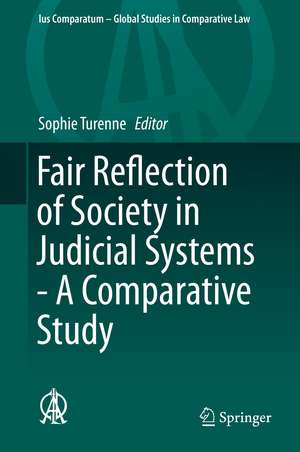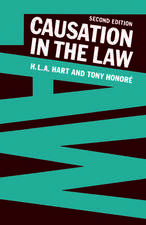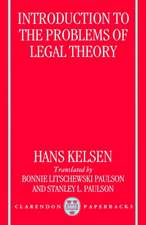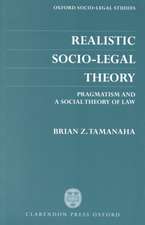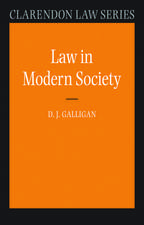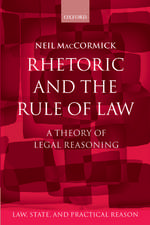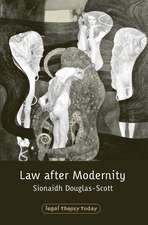Fair Reflection of Society in Judicial Systems - A Comparative Study: Ius Comparatum - Global Studies in Comparative Law, cartea 7
Editat de Sophie Turenneen Limba Engleză Hardback – 30 iul 2015
| Toate formatele și edițiile | Preț | Express |
|---|---|---|
| Paperback (1) | 638.11 lei 6-8 săpt. | |
| Springer International Publishing – 15 oct 2016 | 638.11 lei 6-8 săpt. | |
| Hardback (1) | 644.30 lei 6-8 săpt. | |
| Springer International Publishing – 30 iul 2015 | 644.30 lei 6-8 săpt. |
Din seria Ius Comparatum - Global Studies in Comparative Law
- 18%
 Preț: 1584.40 lei
Preț: 1584.40 lei - 18%
 Preț: 1009.22 lei
Preț: 1009.22 lei - 18%
 Preț: 1573.51 lei
Preț: 1573.51 lei - 18%
 Preț: 1255.16 lei
Preț: 1255.16 lei - 24%
 Preț: 1515.09 lei
Preț: 1515.09 lei - 24%
 Preț: 802.74 lei
Preț: 802.74 lei - 15%
 Preț: 651.84 lei
Preț: 651.84 lei - 18%
 Preț: 958.56 lei
Preț: 958.56 lei - 24%
 Preț: 812.86 lei
Preț: 812.86 lei - 15%
 Preț: 653.33 lei
Preț: 653.33 lei - 15%
 Preț: 654.43 lei
Preț: 654.43 lei - 18%
 Preț: 1401.16 lei
Preț: 1401.16 lei - 18%
 Preț: 1007.80 lei
Preț: 1007.80 lei - 18%
 Preț: 898.89 lei
Preț: 898.89 lei - 18%
 Preț: 956.99 lei
Preț: 956.99 lei - 18%
 Preț: 789.98 lei
Preț: 789.98 lei - 15%
 Preț: 644.95 lei
Preț: 644.95 lei - 18%
 Preț: 953.97 lei
Preț: 953.97 lei - 18%
 Preț: 1009.85 lei
Preț: 1009.85 lei - 18%
 Preț: 955.08 lei
Preț: 955.08 lei - 18%
 Preț: 2787.02 lei
Preț: 2787.02 lei - 18%
 Preț: 1010.03 lei
Preț: 1010.03 lei - 18%
 Preț: 1403.67 lei
Preț: 1403.67 lei - 18%
 Preț: 2114.90 lei
Preț: 2114.90 lei - 18%
 Preț: 2107.49 lei
Preț: 2107.49 lei - 18%
 Preț: 997.71 lei
Preț: 997.71 lei - 18%
 Preț: 955.40 lei
Preț: 955.40 lei
Preț: 644.30 lei
Preț vechi: 758.01 lei
-15% Nou
Puncte Express: 966
Preț estimativ în valută:
123.34€ • 126.92$ • 103.97£
123.34€ • 126.92$ • 103.97£
Carte tipărită la comandă
Livrare economică 01-15 martie
Preluare comenzi: 021 569.72.76
Specificații
ISBN-13: 9783319184845
ISBN-10: 3319184849
Pagini: 335
Ilustrații: IX, 236 p. 2 illus.
Dimensiuni: 155 x 235 x 20 mm
Greutate: 0.53 kg
Ediția:1st ed. 2015
Editura: Springer International Publishing
Colecția Springer
Seria Ius Comparatum - Global Studies in Comparative Law
Locul publicării:Cham, Switzerland
ISBN-10: 3319184849
Pagini: 335
Ilustrații: IX, 236 p. 2 illus.
Dimensiuni: 155 x 235 x 20 mm
Greutate: 0.53 kg
Ediția:1st ed. 2015
Editura: Springer International Publishing
Colecția Springer
Seria Ius Comparatum - Global Studies in Comparative Law
Locul publicării:Cham, Switzerland
Public țintă
ResearchCuprins
Table of contents.- About the Authors.- 1. Fair reflection of society in judicial systems; Sophie Turenne.- 2. Judges and democracy in Argentina: an elite in search of legitimacy; José Sebastián Elias.- 3. Concepts of representation in their application to the judiciary in Australia; Susan Kiefel AC and Cheryl Saunders.- 4. Re-forming a meritorious elite. Judicial independence, selection of judges and the High Council of Justice in Belgium; Maurice Adams and Benoît Allemeersch.- 5. La justice constitutionnelle au-delà du gouvernement des juges: la constitution de pratiques pour refléter la société; Stéphane Bernatchez.- 6. Judicial selection, lay participation, and judicial culture in the Czech Republic: a study in a Central European (non)transformation'; Michal Bobek.- 7. Lay judges and professionals in Danish Courts; Ditlev Tamm.- 8. Finnish judges between tradition and dynamism; Pia Letto-Vanamo.- 9. How to become a Judge in Hungary? From the professionalism of the judiciary to the political ties of the Constitutional CourtBalázs Fekete.- 10. The independence and social influence of a meritorious legal elite in Serbia; Dušan Nikolić.- 11. The government of judges and democracy. The tragic institutional situation of the Venezuelan judiciary; Allan R. Brewer-Carías.- Annex: Questionnaire.
Textul de pe ultima copertă
This book addresses one central question: if justice is to be done in the name of the community, how far do the decision-makers need to reflect the community, either in their profile or in the opinions they espouse? Each contributor provides an answer on the basis of a careful analysis of the rules, assumptions and practices relating to their own national judicial system and legal culture. Written by national experts, the essays illustrate a variety of institutional designs towards a better reflection of the community. The involvement of lay people is often most visible in judicial appointments at senior court level, with political representatives sometimes appointing judges. They consider the lay involvement in the judicial system more widely, from the role of juries to the role of specialist lay judges and lay assessors in lower courts and tribunals. This lay input into judicial appointments is explored in light of the principle of judicial independence. The contributors also critically discuss the extent to which judicial action is legitimised by any ‘democratic pedigree’ of the judges or their decisions. The book thus offers a range of perspectives, all shaped by distinctive constitutional and legal cultures, on the thorny relationship between the principle of judicial independence and the idea of democratic accountability of the judiciary.
Caracteristici
First book to pull together the many facets of lay involvement in the judicial system Brings together a group 11 essays from renowned experts in Comparative Law, Constitutional Law and Legal History on the democratic accountability of judges Offers insights into the legal culture that shapes judicial independence in 10 countries, covering 4 continents
